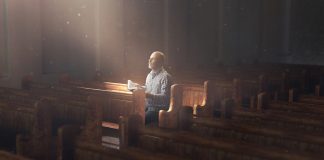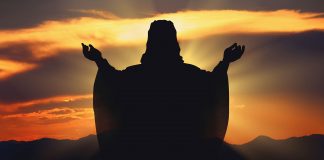The mark of the beast | A controversial apocalyptic motif
In addition to its social and economic consequences, the COVID-19 pandemic also raised a religious question that has been raised every time there has been a major change in society: did the wearing of the mask, the anti-COVID vaccine or the green certificate have anything to do with the mark of the beast or the number 666 in the last book of the...
The conditions for courage (I)
Motto: "Fear is a reaction. Courage is a decision." (Winston Churchill)
Divergence and confluence
My daughter recently posted on our family website a photo of our niece celebrating while holding a beautiful fresh rose, tall and slim, just like her. I looked at the photo for a long time then wrote under it: "Two vines." I pondered some more then wrote, "One of these vines knows why it is here on Earth, but I wonder if the...
How would God want a person to live on any given day?
Living one day according to God's plan is a good idea to start with. But learning to live in such a way every day is something else.
Chernobyl: The cost of lies
On April 26th 1986, reactor 4 at Chernobyl nuclear power plant in Ukraine exploded. The effects were catastrophic—it was the worst nuclear disaster in history. The explosion let out the equivalent of 500 Hiroshima bombs-worth of radiation, and the area around Chernobyl—including the town of Pripyat—is now uninhabited. It will be unsafe to live there for the next 20,000 years.
So you’re church-shopping…
Have you ever seen the early morning worship programs on television? The packed congregations, the huge church venues, the smooth-talking evangelist who delivers the perfect sermon . . . Church seems to be where the action is. That there are so many new mega-churches popping up all over the world suggests that a lot of people are desperate for spiritual guidance and fellowship....
The meaning you find on your way back
In Western tradition, starting with Thales of Miletus, philosophers have always sought answers to questions that transcend the material, tangible world. One of the most burning questions that has lasted for centuries and has troubled many enlightened minds is the dilemma of the meaning of life.
A friend of God
Even if there were a thousand people in a room with Pastor Jim Ayer, you wouldn't be able to miss him. He towered over most people by at least a head and always wore a black hat with a wide brim. I recognised him as the friendly host of a programme on Adventist World Radio, for which he travelled to the most unusual...
No doubt has overtaken us, except that which is common to mankind
Without ever looking for doubt I often welcomed it with interest and gratitude. I did not run away from it, nor did I treat it with indifference. I rather sought to tone it down.
The pursuit of signs and miracles
Back when I was a student, I heard this joke that, despite being funny, made me stop and think. It went something like this: a man starts hearing an "inner voice" telling him to sell his house, move to Bucharest, and use all the money to bet on a black 13 at roulette. The man complies without question because the voice spoke with...
A year of waiting
For me, 2022 was the year of waiting—a word that managed to define our lives, thoughts and actions to an unexpected degree.
Can I trust the Bible?
The Bible is not the product of an event or a circumstance, but of time, study and especially of the journey that humanity took on its way to its development. But could it be that all the time that has passed has also eroded its relevance? How much confidence can we still have in the Bible, in the 21st century?
Hope from the pit
Fire falling from the sky. A massive tsunami. An abandoned city. Let’s be real—it’s probably Los Angeles or New York (although sometimes Sydney or Hong Kong makes a cameo). These are the images we most often associate with the end of the world. Whatever comes to mind for you, no doubt it has been shaped in large part by literature, art and, of...
The face that transforms me
Every time I look through the lens of a microscope, I am struck by the realisation that beyond what the naked eye can see lies a universe far deeper and richer.
Son of God
Even in this secular age, the world’s largest group of religious believers—a full third of Earth’s human population—worships Jesus of Nazareth as the eternal God who appeared in human flesh. Millions more—Muslims, Baha’i, Hindus, Buddhists and others—recognise His unique connection to the Divine, His wisdom and His compassion.


























